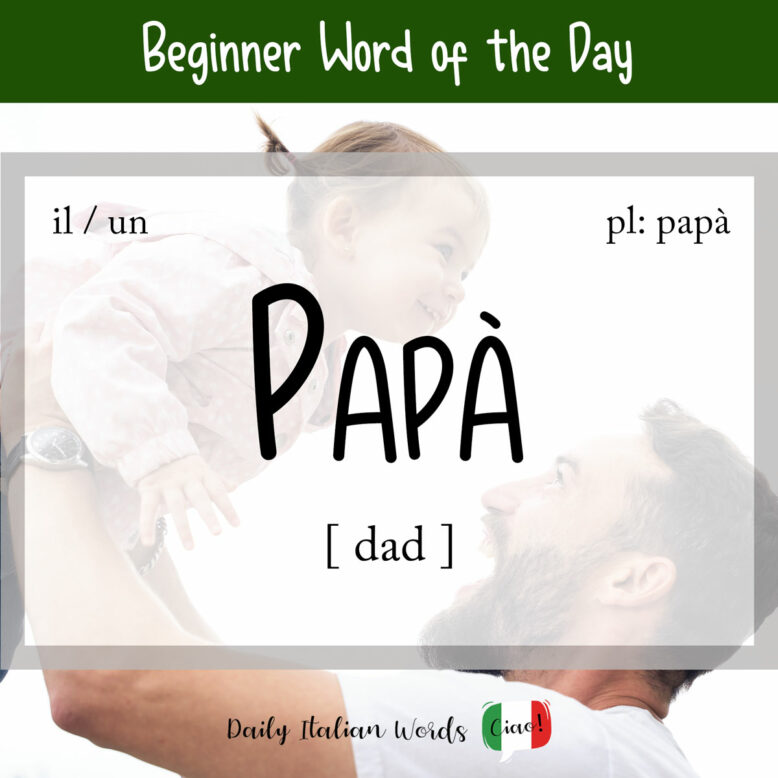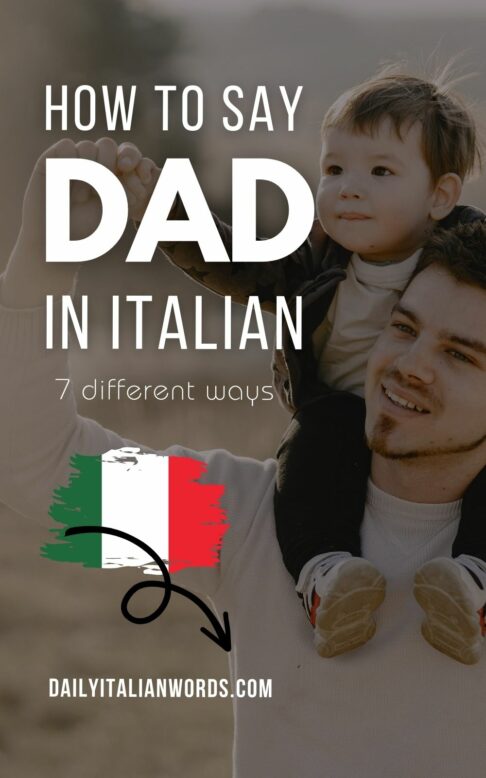The affectionate name children use towards their father (padre) in Italian is papà. It is the equivalent of dad, daddy or pa in English.

A very easy mistake you might make when you first start learning Italian is to accidentally place the emphasis on the first rather than the last syllable. If you place it on the first, you get papa which is the word for the pope!
Mio papà ha conosciuto il papa.
My dad met the pope.
Also make sure not to confuse it with the similar sounding pappa, the childish word for food and the name for baby food or mush.
Il papà ha dato la pappa al suo bambino.
The father fed the baby food to his child.

A girl who is particularly attached to, or spoiled by, her father is called bella di papà or cocca di papà (daddy’s girl) in Italian.
Four cute variations on this word are the diminutive forms papi, papino, papo and the short form pà. When I was working as an au pair in Italy, the children I looked after almost always called their dad papi instead of papà.
Another nickname you may hear quite often, especially in and around Tuscany, is babbo, which is the same word seen in the name Italians give to Santa Claus: Babbo Natale.
Teenagers and adult children often playfully use terms to refer to their father that go beyond the traditional papà and instead describe his role in the family, appearance, or attitude. Some of the most commonly used terms include capo (boss), vecchio (old man), and the English word boss.

The term figlio di papà (son of dad) refers to a man who enjoys the benefits or comforts of belonging to a rich or prestigious family. The equivalent expression in English is to be born with a silver spoon in one’s mouth.
In addition to one’s biological father (padre biologico), there are different kinds of dads worth celebrating. These include:
- nonno = grandfather
- bisnonno = great-grandfather
- suocero = father-in-law
- padrino = godfather
- patrigno = stepfather
- padre adottivo = adoptive father
- padre affidatario = foster father
- figura paterna = father figure
Did you know that…?
In Italy, according to the Roman Catholic tradition, Father’s Day – known as La festa del papà or La festa del babbo in Italian – is celebrated on March 19th or the Feast of Saint Joseph (Festa di San Giuseppe) rather than June 21st.

Heather Broster is a graduate with honours in linguistics from the University of Western Ontario. She is an aspiring polyglot, proficient in English and Italian, as well as Japanese, Welsh, and French to varying degrees of fluency. Originally from Toronto, Heather has resided in various countries, notably Italy for a period of six years. Her primary focus lies in the fields of language acquisition, education, and bilingual instruction.


